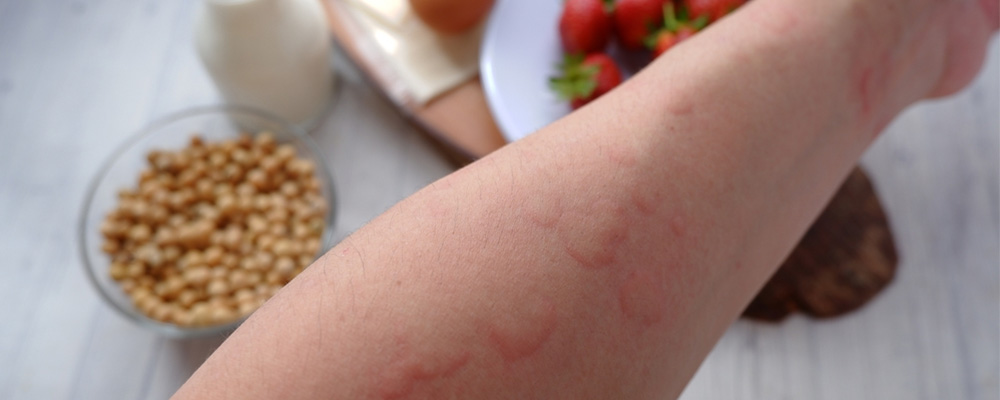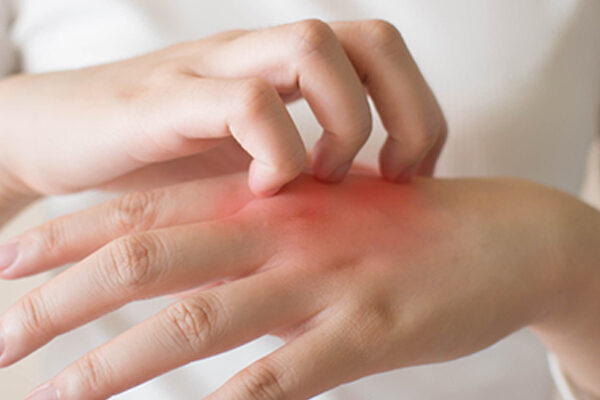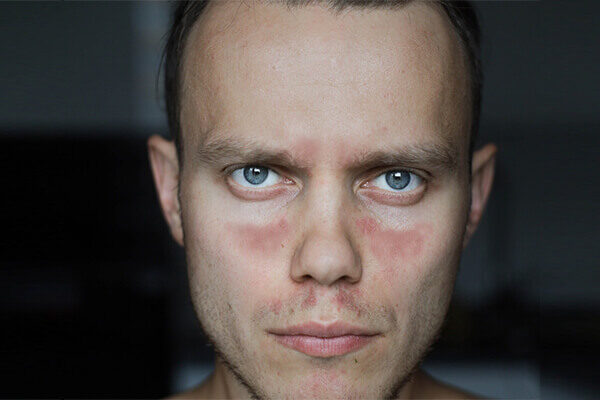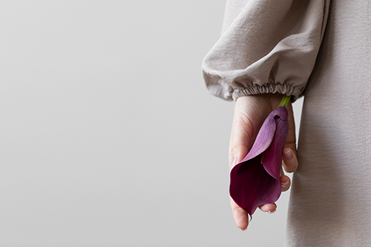Updated on November 6, 2023
Overview
Papular Urticaria also typically known as Hives, Weals, or Nettle Rash is a common skin condition that presents as a raised red rash on the skin, which is extremely itchy. The rash changes its appearance but usually subsides within a few days with proper care and management. Hives can be difficult to manage for some, however, proper guidance on the management and treatment options can help to get relief.
History Of Urticaria
The term ‘urticaria’, got from Urtica urens (stinging weed), was first presented by William Cullen in the 1800’s years. Today, urticaria is perceived to be a gathering of sicknesses, generally normally delegated either intense or constant, and unconstrained or prompted by unambiguous evoking triggers.
Prevalence Of Urticaria
Urticaria is a common skin condition with a prevalence rate of 15% to 23% of people who have experienced the symptoms of acute urticaria once in their lives. Whereas the prevalence rate for chronic urticaria is comparatively low than acute, with 0.5% to 5% of adults affected by it. If we look at the gender-wise prevalence, then females are more prone to having urticaria than males.
What Is Papular Urticaria?
Papular Urticaria as previously explained is a chronic skin condition that is painful and causes bumps that look like bug bites but, it is an urticaria rash. The urticaria rash or stress rash is red in color and raised on the skin. It may appear on one part of the body but it gradually spreads to other parts and changes its appearance and size. The size of an urticaria rash may range from a few millimeters to the size of the palm of the hand. The rash is short-lived if it is managed timely.
What Causes Urticaria?
Urticaria is an exaggerated allergic reaction restricted to the skin and tissues. Some of the causes include a reaction to a drug, ingestion of certain foods, insect bite, or an injection. As a response to an allergy, histamines are released which cause inflammation and retention of fluid under the skin resulting in bumps on the skin surface, redness, and swelling.
Risk Factors
Some of the risk factors for papular urticaria are:
- Allergies
- History of hives
- Frequent viral infections
- Medications
- Emotional triggers
- People with conditions like celiac disease, lupus, type 1 diabetes, and thyroid disease.
What Triggers Papular Urticaria?
There are certain factors that trigger an allergic response resulting in the appearance of a rash on the skin. These include:
- Foods like peanuts, strawberries, eggs
- Insect bites
- Certain medications
- Blood transfusion
- Certain plants
- Chronic illnesses
What Are The Symptoms To Look For?
Some of the symptoms of papular urticaria are:
- Raised bumps
- Itchy skin
- Blanched skin
- Swelling
- Welts on the skin with color variation
Are There Different Types Of Chronic Hives?
There are several different types of chronic hives. Each is different depending on the symptoms and its site.
-
Acute Urticaria:
This is the most common type of hives. It usually presents on the face, toes, fingers, neck, and sometimes on men’s genitals. It lasts less than six weeks. The cause includes certain medications and foods.
-
Chronic Urticaria:
It lasts more than six weeks and can be due to changes in the immune system or certain chronic conditions like thyroid, cancer, etc. Chronic urticaria is difficult to diagnose.
-
Physical Urticaria:
The hives are due to some physical reason. There are different types of physical urticaria including:
- Papular Urticaria: It is most common in young children. An allergic reaction to insect bites is the cause of papular urticaria.
- Cold Urticaria: As the name suggests, it is caused by exposure to cold. The outbreak is sudden and symptoms vary from person to person.
- Cholinergic Urticaria: This type is caused by an increase in body temperature due to hot showers, anxiety, sweating, etc.
- Solar Urticaria: It is caused by sun exposure. The bumps appear as soon as a person comes in direct contact with the sun.
- Dermatographic Urticaria: It is caused by constant rubbing and scratching of the skin. The rash lasts less than an hour.
Are Hives Contagious?
Hives are not contagious. However, the factors causing them might be contagious like viral or bacterial infections, throat infections, common cold, etc. These infections can spread to people in close contact with you.
How Long Does A Papular Urticaria Rash Stay?
There is no specific timeline for stress rash. It can last from minutes to hours and even weeks depending on the severity of the condition and rash.
Stress and Urticaria Rash:
Urticaria rash and stress rash are the same. It may appear anywhere on the body with small bumps, gradually increasing in size and changing its shape. The stress rash is painful, red, and blotchy. The rash burns or stings. Extreme weather, chemicals, exercise, fabric, pollen, etc. can cause these rashes.
Hives In Children:
Chronic hives are very common in children with more or less similar presentation as in adults. There is no known cause for it but they usually resolve within a few days to weeks and are not usually of concern.
The symptoms of urticaria in children might be severe like:
- Swelling of hands, feet, eyes, and lips
- Dizziness
- Fussiness
- Stinging sensation
Rarely, the symptoms might be life-threatening in children because of a severe allergic reaction (anaphylaxis). The symptoms may include:
- Joint pain
- Fever
- Vomiting
- Dysphagia (difficulty swallowing)
Itching In Urticaria – How To Manage?
Itching is one of the prominent features of Urticaria. When a stress rash itches, it makes one uncomfortable and affects their day-to-day activities. However, there are certain tips to handle the itch:
- A cold compress like ice cubes to relieve itch
- Using anti-itch medication
- Using aloe vera to soothe itching and swelling
- Applying moisturizer to keep dryness at bay
- Strictly follow the treatment plan prescribed by your doctor to completely eliminate the condition
How Is Urticaria Different From Eczema?
Urticaria rash is red, raised, and itchy with swelling beneath the skin. It can change shape and spread to other parts of the body. It presents as wheals. Whereas eczema rash is red, scaly, and itchy, it presents as tiny bumps called blisters. It appears mainly on the face, elbows, and knees. Both the conditions have different triggers which help a physician differentiate between the two.
Urticaria and Impact on Mental Health
As Urticaria is a skin condition, it can affect one’s mental health because of the appearance of stress rashes and the fear of judgment by others. It has a severe impact on one’s self-esteem and personality, and it also compels them to isolate themselves to avoid all the negative comments and energy they receive from others.
All this stress exacerbates the condition and affects the quality of life. It causes sleep disorders due to anxiety, negative self-image, and disability of social functioning. Urticaria also negatively affects one’s mood.
Most dermatological conditions are associated with mental health conditions like depression and anxiety. It is important to introduce psychological help to patients with skin conditions to help them open up about their feelings and make them feel valued.
How Can You Support Your Mental Health?
Having a skin condition can be mentally exhausting at times, keeping in view the type of environment we live in. People judge each other without knowing what the other person might be going through. It is easy to be the perfect one but it is really hard to accept your flaws.
Self-acceptance and self-love is the first step toward living a happy and contented life. self-love and Self-acceptance are two different terms with different concepts but people use them interchangeably. Self-acceptance is when you accept your positive and negative facets with pride, you don’t hide your flaws, instead, you are confident to show them and talk about them. Self-love, on the other hand, is realizing your worth.
A lack of both may affect the quality of life and restrict you from living a happy life. It is essential to be kind to yourself because only then others will be kind and respectful to you.
The path to self-love and acceptance is not difficult, it just needs consistency which comes from the daily practice of gratitude. Accepting the negative or undesirable aspects of your personality is the first step to achieving self-acceptance. Instead of changing your attributes, focus on working on them and accepting them as they are.
No one is perfect and it is absolutely okay. Taking criticism head-on and working on self-improvement is another way to deal with the negativity around you. Writing down your feelings and thoughts on a piece of paper might also help as it relieves anxiety or talking to someone you trust can also help you feel better.
How Is Urticaria Managed?
The first line of treatment should always be avoidance of triggers causing the condition. Urticaria is a response to an allergic reaction that can be treated by anti-allergy medicines or antihistamines in medical terms. Histamine is a chemical that is released by the immune system that triggers an allergic response and symptoms. Nonsedating antihistamines are preferred over older types as it has fewer side effects like drowsiness.
What Are Some Home Remedies For Urticaria?
People prefer home remedies over medications and for some, they do prove beneficial. Some of the popular remedies are:
-
Oatmeal bath:
Can help alleviate itchiness as it is considered a skin protectant. Oats have anti-inflammatory properties that help relieve the symptoms and also strengthen the skin barrier.
-
Aloe vera gel:
It is a common household item that has antibacterial, antiviral, and anti-oxidant properties and promotes the healing of wounds, and also is effective for skin conditions.
-
Use of ice cubes:
It greatly reduces redness and swelling.
-
Tea tree oil:
It has antiviral, antiseptic, and antibacterial properties that make it perfect to use for skin conditions like Hives.
-
Coconut oil:
It has anti-inflammatory and antiseptic properties which make it highly effective in alleviating the itchiness and redness caused by Urticaria.
-
Apple Cider Vinger:
It also has antimicrobial properties.
-
Dead Sea Salts or Epsom Salts:
It helps to relieve itching and scaling.
-
Plant Oils:
Plant oils are very suitable for keeping the skin moisturized. There are various plant oils that are used as moisturizers like argan oil, olive oil, safflower oil, jojoba, chamomile, etc.
The Takeaway
Hives are usually curable but sometimes the symptoms may worsen and can cause life-threatening conditions. Never ignore your symptoms and be aware of your triggers so that timely management can help alleviate the symptoms. Multiple Clinical Research Organizations in Michigan are conducting Urticaria Clinical Trials for therapies that may be able to alleviate the symptoms of Chronic Hives.
It also can have an altering effect on one’s mental and emotional well-being. Therefore, it is advised to seek psychological help if you notice your mental health is affected. Understand that it is okay to have a one-on-one conversation with your psychologist to discuss whatever is on your mind regarding the condition and its impact on your mental state.
Remember, making your mental health a priority is the best treat you can give yourself!








